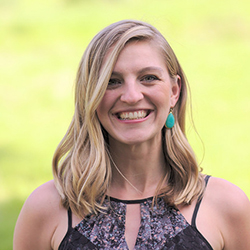
Statistics seem to drive the news lately. It’s an election year, so people are obsessing over polls. Public policy discussions are being driven by research and analysis. Now more than ever, people are thinking and talking about statistics and what they mean.
Wikipedia attracts millions of those online queries every day. Search for something on the web, and you’re bound to end up on Wikipedia. So it’s crucial that the information the public finds is reliable, accurate, and comprehensible.
Unfortunately, statistical information isn’t always presented in the clearest way on Wikipedia. When it comes to understanding statistics, articles often have a lot of room for improvement. Some articles are great: The Monty Hall Problem, for example.
But what if articles on important statistical topics, such as Deviance or Causal inference were just as easy for online passerby to understand?
This summer, I’ve been attending conferences such as the Joint Statistics meeting to help identify and remedy these information gaps. We’re asking instructors to assign their students to think deeply about their fields, and then make a change to the way others access that information. In other words: students can help simplify complex language, and bring a wider understanding of statistics to the public.
A few instructors raised concerns about whether students could create that kind of high quality content. But when I mentioned the help of our content experts, our online trainings, and our scaffolded approach to writing for Wikipedia (including our freshly updated course timelines) they saw the possibilities.
Fittingly, Milo Schield of Augsburg College wants his students to work together to update the Wikipedia article on Statistical literacy. While the page does have some good information, and touches upon the complications in using statistics in advertising, Dr. Schield saw ways for his students to expand the article. With more sections, good citations, and a clear vision, this page could become a great source for individuals who want to learn more about statistics.
Our work at the JSM is just one step in our larger year of science – a year long initiative to improve the way students think about and access science knowledge. By communicating what they know, student editors think about how to share their work with the world. But they’ll also think deeply about how to assess the information they find online. Along the way, millions of readers get access to the world’s most-read open knowledge resource: Wikipedia.
Are you an American or Canadian instructor working in statistics in higher ed? Do you want to work with your students to help improve Wikipedia? Check out more information here to learn more, or contact us at contact@wikiedu.org. I hope to hear from you soon!
Photo: Miastootwarte by Sebastian Sikora, CC-BY 2.0 via Flickr.
